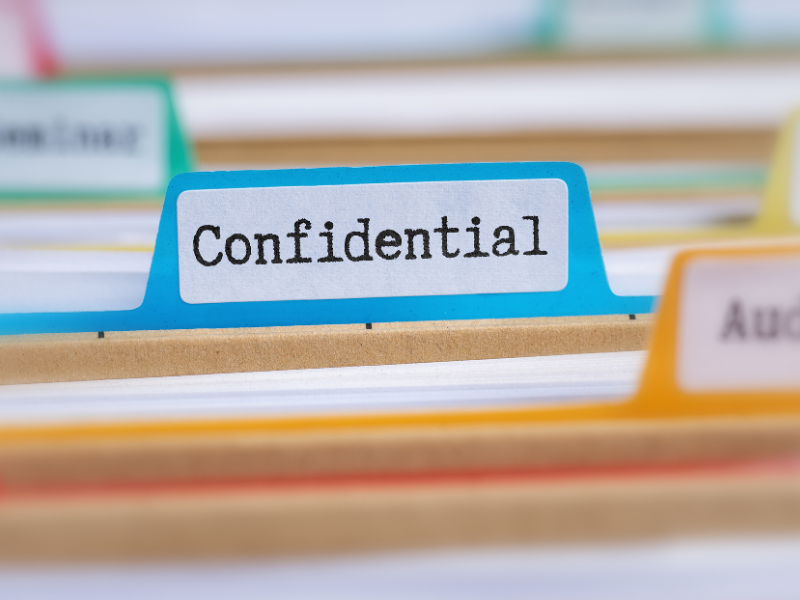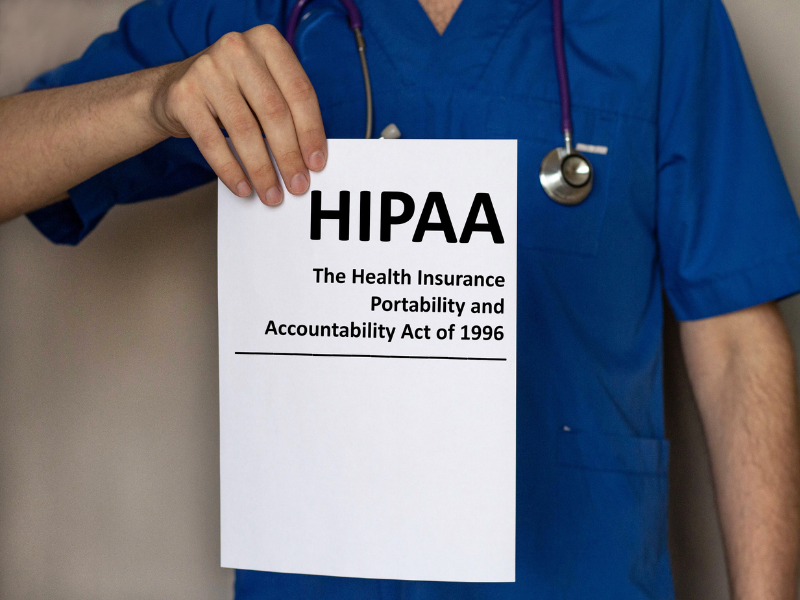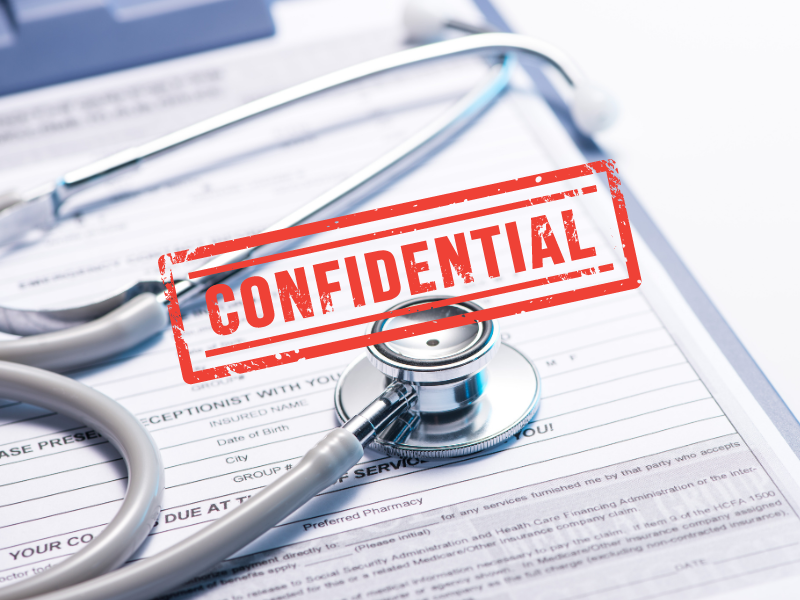Protecting sensitive information has never been more critical in the healthcare sector. In an era defined by cyber threats and data breaches, companies must prioritize the security of their confidential records.
But what exactly are confidential records, and what purpose do they serve? In this article, you will learn about their vital role in ensuring your business’s safety and success.
Table of Contents

What Are Confidential Records?
If you’re wondering about the meaning of confidential records, York University has a straightforward definition: confidential records contain information that should only be disclosed to specific people or groups. Therefore, businesses with access to such records should restrict access to these files to authorized personnel only and according to law. Such documents can be in various formats, including digital files, hard copies, or verbal communications.
Confidential records can be used for malicious activities, such as fraud, theft, harassment, or other crimes. Thus, they are strictly protected by privacy laws and regulations such as the Health Insurance Portability and Accountability Act (HIPAA), particularly when handling sensitive information like mental health records.
Types of confidential records
Your business handles a lot of sensitive information. Knowing what information is confidential help you prioritize their privacy. Confidential records include but are not limited to:
- Trade Secrets – Your business’s proprietary knowledge, such as strategies, customer lists, research and development information, and other processes that give your company a competitive edge
- Customer Data – Personally identifiable information (PII) such as names, addresses, contact details, medical records, and payment information
- Legal documents – Any document related to your business’s legal concerns, such as contracts, leases, and lawsuits
- Financial Information – Confidential financial records, including tax information, banking details, and budgets
- Intellectual Property – Patents, copyrights, trademarks, and other legally protected creations
- Employee Data – Personal employee information, CVs, payroll data, medical records, salary and benefits information, performance evaluations, and disciplinary records

The Importance of Securing Confidential Records
Severe consequences follow when your business’ data is compromised. Here are some reasons why safeguarding confidential records is critical:
- Gives competitive advantage – Confidential records safeguard trade secrets so that you can stay ahead of the competition. If this information falls into the wrong hands, you may give your competitors the upper hand.
- Preserves customer trust and loyalty – Your business has access to customers’ sensitive personal information, such as names, addresses, and financial data, which may also include data related to court records. Properly securing this data fosters trust and loyalty.
- Complies with legal requirements – Just like any company, your business must comply with laws and regulations protecting confidential records. Failure to do so can result in hefty fines and legal problems.
- Protects reputation – A data breach that exposes sensitive information can damage your business’s reputation and lead to lost customers.
- Avoids financial fallouts – Aside from the fines you can incur from failing to comply with the law, you might also lose valuable revenue and investments. It’s harder for businesses to retain existing clients and attract new customers and investors when the public learns that they can’t keep their confidential records private.

Confidentiality Laws and Regulations
Several laws and regulations have been enacted worldwide to protect confidential records. The Health Insurance Portability and Accountability Act (HIPAA) and the General Data Protection Regulation (GDPR) are two prominent examples.
HIPAA and confidential medical records
HIPAA is a United States law that safeguards individuals’ medical information, including mental health services. It ensures health records’ confidentiality, integrity, and availability while granting patients control over their personal data. Compliance with HIPAA regulations is mandatory for healthcare providers and their business associates, ensuring the privacy of patients’ sensitive medical records.
GDPR and personal data
The General Data Protection Regulation (GDPR) is a European Union regulation that protects the personal data of all individuals with the EU and the European Economic Area (EEA). It applies to organizations that process or store EU residents’ personal data. The University of Bristol notes that under the GDPR, a data breach occurs when personal data is left unattended and exposed to unauthorized access.
The GDPR ensures that its citizens and residents have control over their data, enforcing strict rules in protecting confidential records. Businesses must implement robust security measures to protect confidential documents and comply with GDPR requirements.
Creating a Culture of Data Privacy
The importance of confidential records cannot be overstated. Strict security measures ensure that your company maintains a competitive advantage, builds customer trust, guards its reputation, remains profitable, and complies with legal requirements. Keep your confidential records safe from prying eyes by encrypting data, using a HIPAA compliance checklist, providing employee training, and ensuring secure storage and disposal of data. By creating a culture of data privacy, your business can protect patient privacy and succeed in an increasingly interconnected world.







